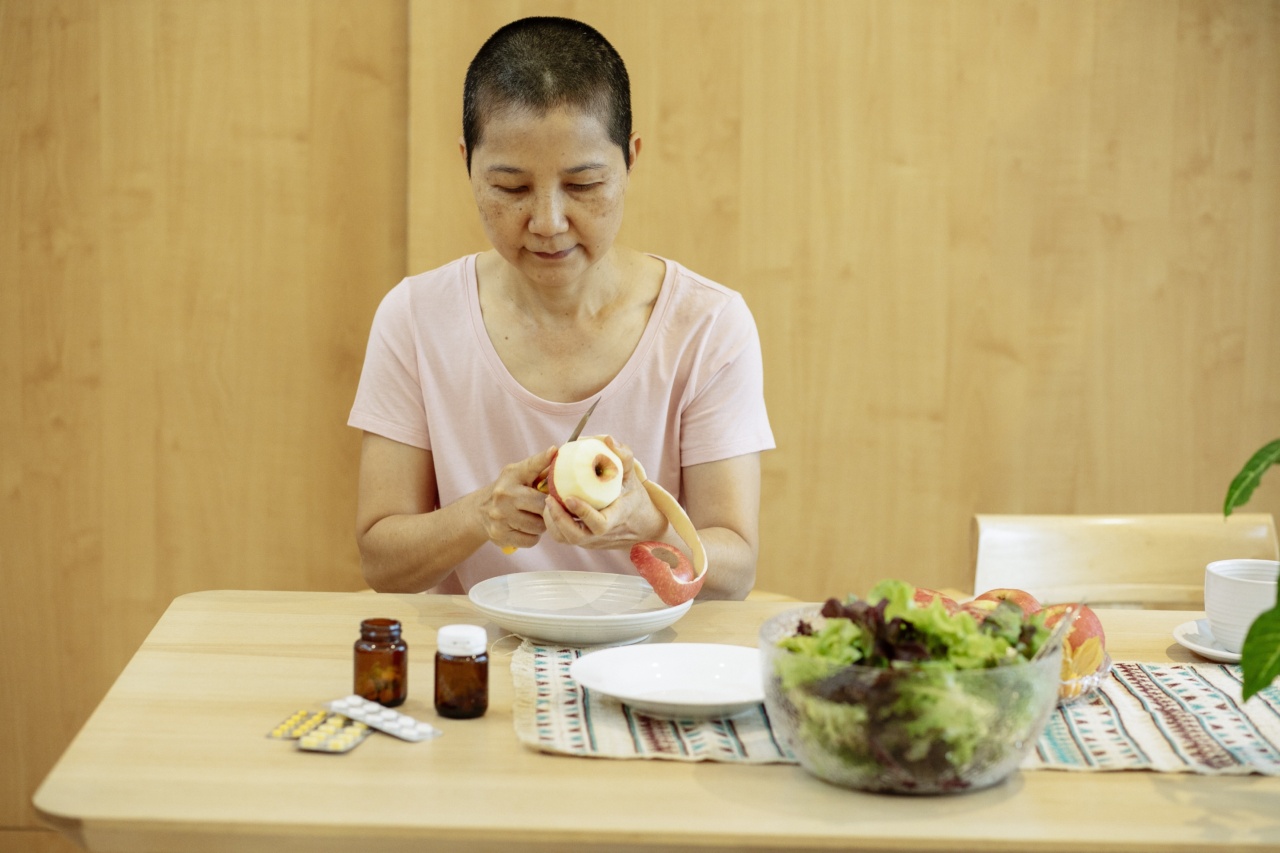When it comes to maintaining good overall health, vitamins play a vital role in ensuring that our bodies function properly.
Vitamin deficiencies can lead to a range of health issues, including an increased risk of certain types of cancer, such as colon cancer. This is especially true for middle-aged individuals who are prone to developing colon cancer.
In this article, we will explore the link between vitamin deficiencies and colon cancer in more detail, and how to prevent this deadly disease from affecting your health.
What is colon cancer?
Colon cancer, also known as colorectal cancer, is a type of cancer that affects the colon and the rectum. It is one of the most common types of cancer, affecting both men and women equally.
According to the American Cancer Society, colon cancer is the third most common cancer diagnosed in the United States, with approximately 104,270 new cases expected to be diagnosed in 2021.
What causes colon cancer?
The exact causes of colon cancer are not fully understood. However, there are several risk factors that can increase the likelihood of developing colon cancer. These risk factors include:.
- Age (50 years and older)
- A family history of colon cancer
- Personal history of colorectal polyps or inflammatory bowel disease
- A diet high in red meats and processed foods
- Lack of physical activity
- Obesity and smoking
How are vitamin deficiencies linked to colon cancer?
Studies have shown that certain vitamin deficiencies can increase the risk of developing colon cancer. The following vitamins have been specifically linked to colon cancer:.
Vitamin D
A deficiency in vitamin D has been linked to an increased risk of colon cancer. Vitamin D plays an important role in the regulation of cell growth and division.
Studies have shown that individuals with higher levels of vitamin D in their blood have a lower risk of developing colon cancer.
Vitamin E
Vitamin E is a powerful antioxidant that helps to protect cells from damage caused by free radicals. A deficiency in vitamin E has been linked to an increased risk of colon cancer.
Studies have shown that individuals with higher levels of vitamin E in their blood have a lower risk of developing colon cancer.
Vitamin B6
Vitamin B6 plays an important role in the metabolism of amino acids and the synthesis of DNA. A deficiency in vitamin B6 has been linked to an increased risk of colon cancer.
Studies have shown that individuals with higher levels of vitamin B6 in their blood have a lower risk of developing colon cancer.
Vitamin B12
Vitamin B12 is essential for the proper functioning of the nervous system and the production of red blood cells. A deficiency in vitamin B12 has been linked to an increased risk of colon cancer.
Studies have shown that individuals with higher levels of vitamin B12 in their blood have a lower risk of developing colon cancer.
Folate
Folate, also known as vitamin B9, is important for the production and maintenance of new cells. A deficiency in folate has been linked to an increased risk of colon cancer.
Studies have shown that individuals with higher levels of folate in their blood have a lower risk of developing colon cancer.
How to prevent colon cancer through vitamin intake
The good news is that colon cancer can be prevented through the intake of certain vitamins. Here are some ways to prevent colon cancer through vitamin intake:.
Take a vitamin D supplement
If you are vitamin D deficient, your doctor may recommend taking a vitamin D supplement. This can help to reduce your risk of colon cancer.
Eat vitamin E-rich foods
Vitamin E can be found in many foods, including nuts, seeds, and leafy green vegetables. Make sure to include these foods in your diet to help protect against colon cancer.
Eat foods high in vitamin B6 and B12
Foods high in vitamin B6 and B12 include poultry, fish, meat, and eggs. Make sure to include these foods in your diet to help protect against colon cancer.
Eat folate-rich foods
Folate can be found in a variety of plant-based foods, including leafy green vegetables, beans, and lentils. Make sure to include these foods in your diet to help protect against colon cancer.
Eat a healthy diet
Eating a healthy diet that is rich in fruits, vegetables, whole grains, and lean proteins can help to reduce your risk of colon cancer.
Exercise regularly
Regular exercise can help to reduce your risk of colon cancer. Aim for at least 30 minutes of moderate exercise each day.
Quit smoking
Smoking increases the risk of colon cancer. If you smoke, quit as soon as possible to reduce your risk.
Conclusion
Vitamin deficiencies can increase the risk of colon cancer, especially in middle-aged individuals. By taking the necessary steps to improve your vitamin intake, you can significantly reduce your risk of developing this deadly disease.
Remember to eat a healthy diet, exercise regularly, and avoid smoking to keep your body healthy and free from colon cancer.




























